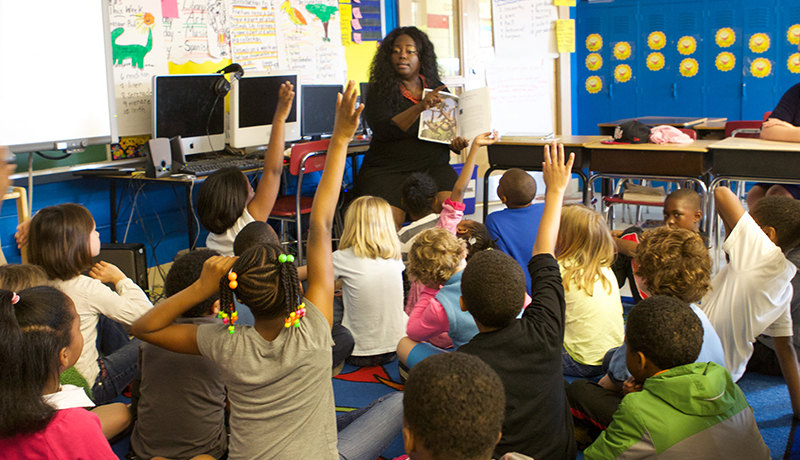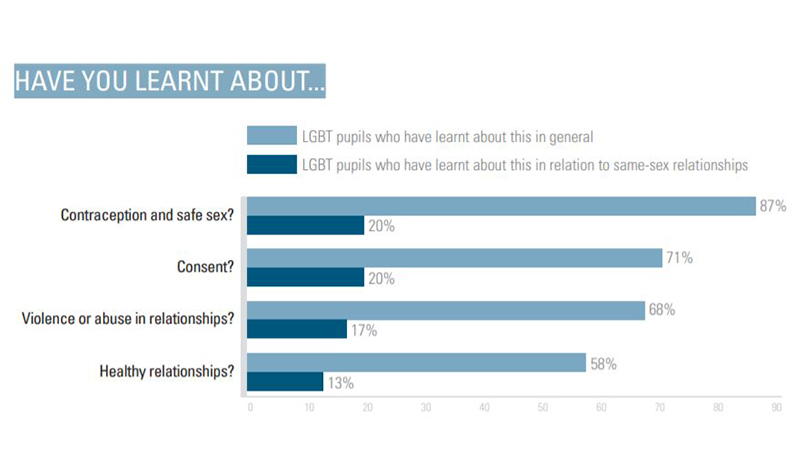 Only 13% of pupils have learnt about healthy same-sex relationships at school (Stonewall: 2017)
Only 13% of pupils have learnt about healthy same-sex relationships at school (Stonewall: 2017)
What is the evidence?
 The percentage of LGBT pupils who report being taught about specific sexual health and relationship topics in school or college
The percentage of LGBT pupils who report being taught about specific sexual health and relationship topics in school or college



Rate and Review
Rate this article
Review this article
Log into OpenLearn to leave reviews and join in the conversation.
Article reviews